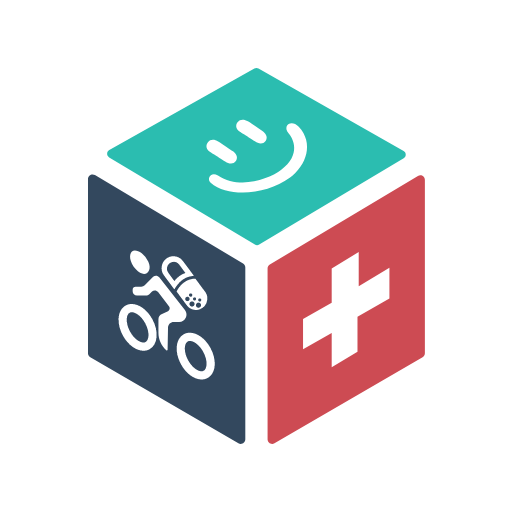Generic Information
PROPRANOLOL HYDROCHLORIDE
Propranolol is indicated in: essential and renal hypertension angina pectoris long term prophylaxis after recovery from acyte myocardial infarction cardiac dysrhythmia prophylaxis of migraine essential tremor anxiety and anxiety tachycardia adjunctive management of thyrotoxicosis and thyrotoxic crisis hypertrophic obstructive cardiomyopathy phaeochromocytoma (with 8-blocker)
Beta-adrenoceptor blocking drugs, Beta-blockers
Propranolol is a non-cardioselective 8-blocker that competitively blocks 81- and 82-receptors resulting in decreased heart rate, myocardial contractility, BP and myocardial oxygen demand. It has membrane-stabilising properties.
Tablet: Adults: Hypertension: A starting dose of 80 mg twice a day may increased at weekly intervals according to response. The usual dose range is 160-320 mg per day. With concurrent diuretic or other antihypertensive drugs a further reduction of blood pressure is obtained. Angina, anxiety, migraine and essential tremor: A staring dose of 40 mg two or three times daily may be increased by the same amount at weekly intervals according to patients response. An adequate response in anxiety, migraine and essential tremor is usually seen in the range 80-160 mg/day and an angina in the range 120-240 mg/day. Situational and generalized anxiety: A dose of 40 mg daily may provide short term relief of acute situational anxiety. Generalized anxiety require long term therapy, usually responds adequately to 40 mg twice daily which ,which individual cases, may be increased to 40 mg three times daily. Treatment should be continued according to responses. Patients should reviewed after 6 to 12 months treatment. Dysrhythmias, anxiety tachycardia, hypertrophic obstructive cardiomyopathy and thyrotoxicosis: A dosage range of 10-40 mg three or four times a day usually achieves the required response. Post myocardial infarction: Treatment should be started between days 5 and after 21 after myocardial infarction, with an initial dose of 40 mg four times a day for 2 or 3 days. In order to improve compliance the total daily doses three after be given as 80 mg twice a day. Phaeochromocytoma (Used only with an alpha receptor blocking drug). Pre-operative: 60 mg daily for three days. Non-operable malignant cases: 30 mg daily. Migraine: Under 12 years: 20 mg two or three times daily. Over 12 years : The adult dose. Children: Sysrhythmias, Phaeochromocytoma, Thyrotoxicisis: Dosage should be individually determined and the following is only a guide 0.25-0.5 mg/kg three or four times daily as required. Sustained Release Capsule: Adult: Hypertension: The usual initial dose is 80mg Propranolol SR once daily, whether used alone or added to a diuretic. The usual maintenance dosage is 120 to 160 mg once daily. Angina pectoris: Starting with 80mg Propranolol SR once daily, dosage should be gradually increased three to seven day intervals until optimum response is obtained. Migraine: The initial oral dose is 80 mg Propranolol SR once daily. T he usual effective dose range is 160 to 240 mg once daily. It may be advisable to withdraw the drug gradually over a period of several weeks. Hypertrophic subaortic stenosis: 80 mg Propranolol SR once daily Injection: Parenteral drug products should be inspected visually for particulate matter and discoloration prior to administration, whenever solution and container permit. The usual dose is 1 to 3 mg administered under careful monitoring, such as electrocardiography and central venous pressure. The rate of administration should not exceed 1 mg (1 mL) per minute to diminish the possibility of lowering blood pressure and causing cardiac standstill. Sufficient time should be allowed for the drug to reach the site of action even when a slow circulation is present. If necessary, a second dose may be given after two minutes. Thereafter, additional drug should not be given in less than four hours. Additional propranolol hydrochloride should not be given when the desired alteration in rate or rhythm is achieved. Transfer to oral therapy as soon as possible.
Beta-adrenoceptor blocking drugs interact with clonidine.If beta-adrenoceptor blocking drugs and clonidine are given concurrently, clonidine should be discontinued until several days after withdrawal of beta-adrenoceptor blocking drug. Care should be taken in prescribing a beta-adrenoceptor blocking drugs with class 1 antidysrhythmic agents (disopyramide).Beta-adrenoceptor blocking drugs should be used with caution in combination with verapamil in patients with impaired ventricular function.
This product is contraindicated in patients with known Hypersensitivity to any component of the formulation. If there is a history of bronchial asthma of bronchospasm.
Propranolol is usually well tolerated. Minor side effects such as cold extremities, nausea, diarrhea, sleep disturbances and lassitude are often transient. There have been reports of skin rashes and/or dry eyes associated with the use of beta-adrenergic blocking drugs.
There are no adequate and controlled studies in pregnant women. Propranolol is excreted in human milk. Caution should be exercised when propranolol is administered to a nursing mother.
The symptoms of over dosage may include bradycardia, hypotension, acute cardiac insufficiency and bronchospasm. Treatment of over dosage include close supervision, treatment in an intensive care ward, he use of gastric lavage, activated charcoal and a laxative to prevent absorption of any drug still present in the gastrointestinal tract, the use of plasma or plasma substitutes to treat hypotension and shock.
Beta-adrenoceptor blocking drugs should be avoided in over heart failure. Propranolol modifies the tachycardia of hypoglycaemic therapy in diabetic patients. Propranolol may prolong the hypoglycaemic response to insulin.
Store in a cool dry place. Protect from light.
